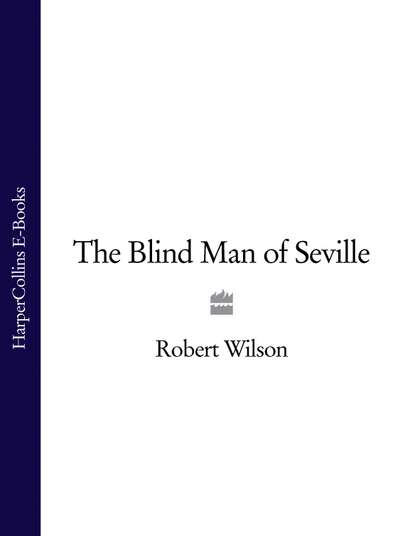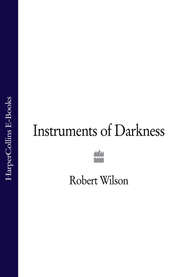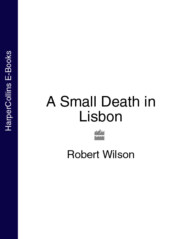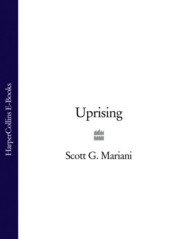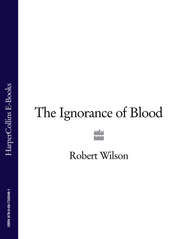По всем вопросам обращайтесь на: info@litportal.ru
(©) 2003-2024.
✖
The Blind Man of Seville
Автор
Год написания книги
2018
Настройки чтения
Размер шрифта
Высота строк
Поля
‘Three years ago?’
‘When I could even approach talking about it myself. They’d been asking me who Arturo was. She’d got that far. And I referred them back to my father, who denied that there had been anybody of that name in family circles, which was not true. My mother’s father was called Arturo. Did I tell you they died?’
‘No.’
‘The year before Arturo was born, both my mother’s parents died within three months of each other. She had cancer. He had a heart attack. I think it must have been why my mother was prepared to risk having another.’
‘What did you tell Marta’s doctors?’
‘My psychoanalyst clarified everything for them later in a letter, but at that stage I told them he was a younger brother who’d died.’
“Which he had done,’ said Falcón, ‘hadn’t he?’
‘I suppose in your line of work you are quite conversant with the nature of pure evil,’ said Jiménez.
‘I’ve come across bad things and mad things, but I’m not sure that I’ve ever come across “the nature of pure evil”. Everything that I’ve investigated has been criminal and therefore comprehensible. Once you start talking about evil then we are on metaphysical ground.’
‘And that,’ said Jiménez, ‘is beyond the remit of the Inspector Jefe del Grupo de Homicidios de Sevilla?’
‘I’m not a priest,’ said Falcón. ‘Had I been, it might have helped, because your father’s murder was the most shocking of my career. When I saw his face and realized what had been done to him I was aware of being in the presence of something very powerful. I am normally quite dispassionate in my work, but this affected me. It’s not something I would want my superior officers to know about.’
Jiménez sat sideways in his chair, one leg crossed over the other. He flexed his hand open and shut. Falcón thought he might want to know what had happened to Raúl, but didn’t want to ask.
‘The evil mind has a deep understanding of human nature,’ said Jiménez, after some moments. ‘It is a mind quite happy pottering about amongst revenge and betrayal, nurturing them. It knows instinctively where and how to strike and reach the very heart of … things. They didn’t kill my father, which would probably have been just. They didn’t rape and murder my mother or my sister or me, which would have been unjust and cruel. They did the one thing that they knew would successfully tear my father’s family apart. They took Arturo. They just took him one day and we never heard from him or them ever again.’
Jiménez blinked rapidly, lost in the vast wasteland of his incomprehension.
‘You mean they kidnapped him?’
‘On the way to her school Marta would always take Arturo to his. On the way back she would pick him up. One day he wasn’t there and he wasn’t at home either. We scoured the town while my mother called my father at the site. He was six years old. Still a baby really. And they took him.’
Jiménez stared up at his family photographs as if their richness was tainted by this poisonous memory. His bottom lip trembled. His Adam’s apple leapt in his throat.
‘Didn’t the police get anywhere?’ asked Falcón.
‘No,’ said Jiménez, the word coming out like a ghost’s breath.
‘Normally when a child goes missing …’
‘They got nowhere, Inspector Jefe, for the simple reason that they were given no information.’
‘I don’t understand.’
Jiménez leaned across the desk, which creaked; his eyes bulged from his head.
‘My father reported the abduction, told them it was a mystery, and within twenty-four hours we had left Almería,’ said Jiménez. ‘I don’t know whether it was because he was terrified that these people might strike again or whether it was his way of avoiding difficult questions from the authorities, or both. But we left Almería. We spent two weeks in a hotel in Málaga. I was with Marta, who retreated into herself and never spoke another word. My mother and father were next door and the screaming … the tears … My God, it was terrible. Then he moved us all to Seville. We rented some apartment in Triana and then moved into the Plaza de Cuba later in the year. My father had to go back to Almería a few times to wrap up his business and make an appearance in front of the authorities, and that was the end of Arturo.’
‘But what did he say to you, the family? How did he explain it and his bizarre reaction?’
‘He didn’t explain it. He just used his volcanic anger to make us understand that we should all forget Arturo … that Arturo did not exist.’
‘And the kidnappers — are you saying there were no demands …?’
‘You haven’t understood, Inspector Jefe,’ said Jiménez, pushing his pleading hands across the table. ‘There were no demands. That was their price. Arturo was their price.’
‘You’re right. I don’t understand. I don’t understand any of it.’
‘Then you are in our club. My dead mother, my mad sister, me, and now you,’ said Jiménez. ‘In that move between Almería and Seville we lost all trace of Arturo. No evidence of him arrived with us. All photos, his clothes, toys, even his bed. My father rewrote family history and left Arturo out. By the time we moved into the apartment in Plaza de Cuba we were like the living dead. My mother stared out of the window all day, looking in the street below, jumping at the glass whenever a small boy appeared. My sister maintained her silence and had to be taken out of the school she’d just been put into. I stayed away from there as much as I could. I lost myself … with new friends, who would never know me as the boy who’d had a younger brother.’
‘Lost yourself?’
‘I think that’s what happened to me. I had a strange inability to recall anything before I was fifteen. Most people have memories as far back as three or four, some even as far back as babies in their prams. I had nothing distinct, just vague hints, shadowy forms of what I’d been … until a few years ago.’
Falcón tried to remember his first memory and couldn’t get much beyond breakfast yesterday.
‘And you have no idea why your father made this devastating decision?’
‘I assume it was something criminal. A serious investigation into Arturo’s abduction would have necessitated major revelations, which presumably would have ruined my father … probably put him in prison. It obviously had something to do with that ugly business in Tangier. There may have been a moral angle to it as well, appalling behaviour of some sort, which might have turned his wife against him. I don’t know. Whatever, my father must have reasoned it out in his own peculiar way, that Arturo would have been in North Africa or certainly in a ship bound for North Africa within hours of his abduction. He must have weighed it up, in his monstrous mind, that the police would have no chance, that he would have no chance.
‘The kidnappers’ message was clear. This is the price for what you’ve done. And now this is your choice: come after him and ruin yourself or accept this heavy price and continue. Don’t you think that the perfection of this terrible choice is in the nature of pure evil? They were saying, Do you want to embrace good or evil? If you are a good man you will come after your son, you will do everything in your power and it will ruin you utterly. You will end up living in exile or prison. Your family will be destroyed. And … this is the horror of it, Inspector Jefe, still you will not get Arturo back. Yes, that was it. That’s what I worked out. They forced him to embrace evil and, having done it, he had to resort to the devil’s means to survive. He persuaded himself and us that Arturo did not exist. He stamped him out and us with him. He forced us to cope with the loss in his way and he destroyed everything. His wife and his family. And this must have been his final calculation: given that Arturo is lost, that my family will be destroyed whatever I do, then what would I prefer?’
Jiménez held up a hand, weighed it, lifted it high and said:
‘The feathery lightness of moral goodness?’
He brought the other hand up and sent it crashing to the desk:
‘Or the golden weight of power, position and wealth?’
Silence while both men contemplated the unevenness of those scales.
‘I thought,’ said Falcón, through the leathery hush of the book-lined room, ‘that we’d outgrown the age of tragedy, an age where there could be tragic figures. We no longer have kings or great warriors who can fall from such heights to such depths. Nowadays we find ourselves admiring screen actors, sportsmen or businessmen, who somehow lack the stuff of tragedy and yet … your father. He strikes me as that rare beast … the modern tragic figure.’
‘I just wish the play had not been my life,’ said Jiménez.
Falcón stood to leave and saw his coffee cold and undrunk on the edge of the desk. He shook Jiménez’s hand for longer than usual to show his appreciation.
‘That was why I had to call you back,’ said Jiménez. ‘I had to speak to my analyst.’
‘To ask permission?’
‘To see if he thought I was ready. He seemed to think it was a good idea that the only other person to hear my family story should be a policeman.’
‘To act on it, you mean?’
‘Because you would be bound by confidentiality,’ said the lawyer seriously.
‘Would you prefer that I didn’t talk to Consuelo about any of this?’





